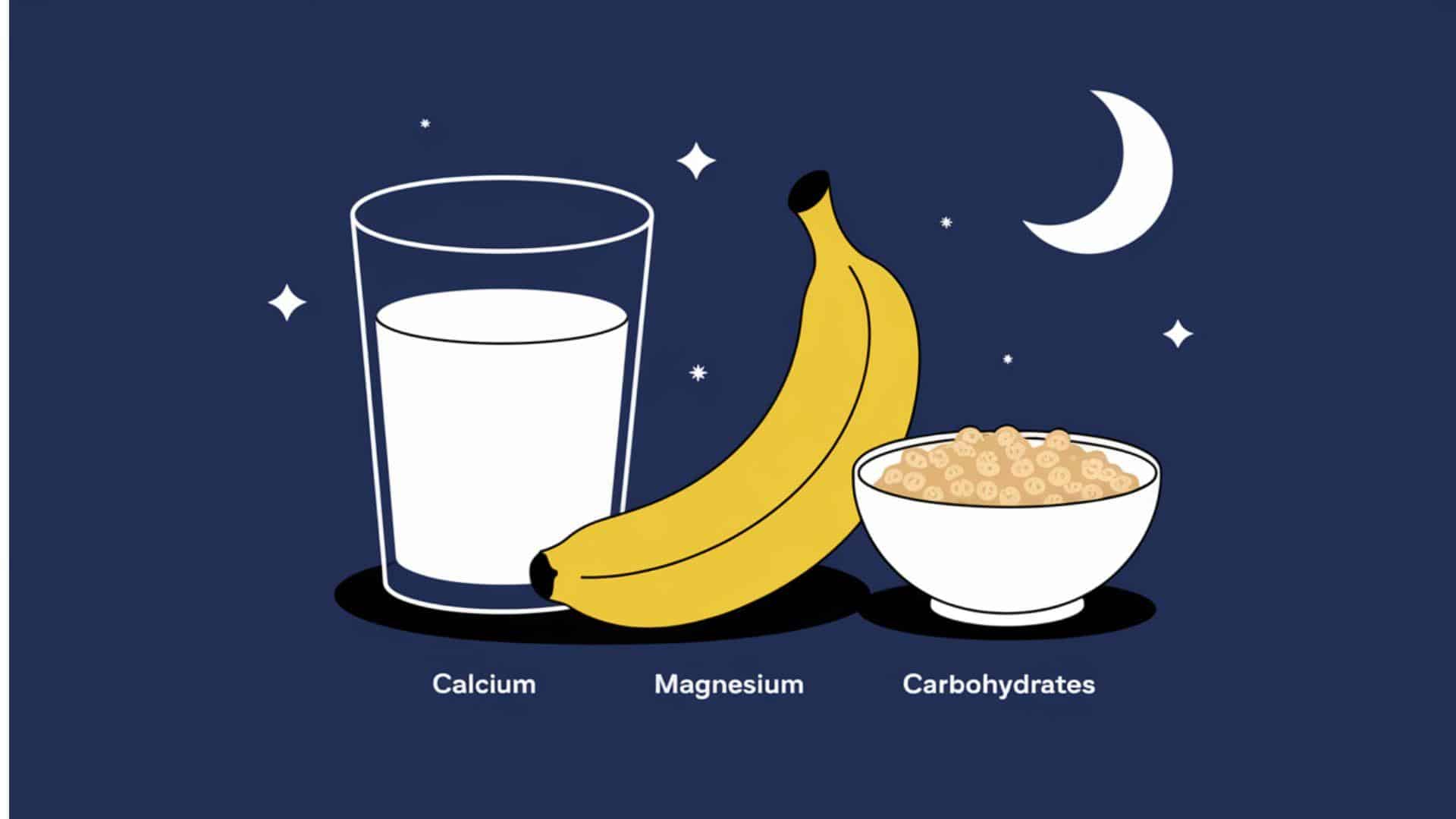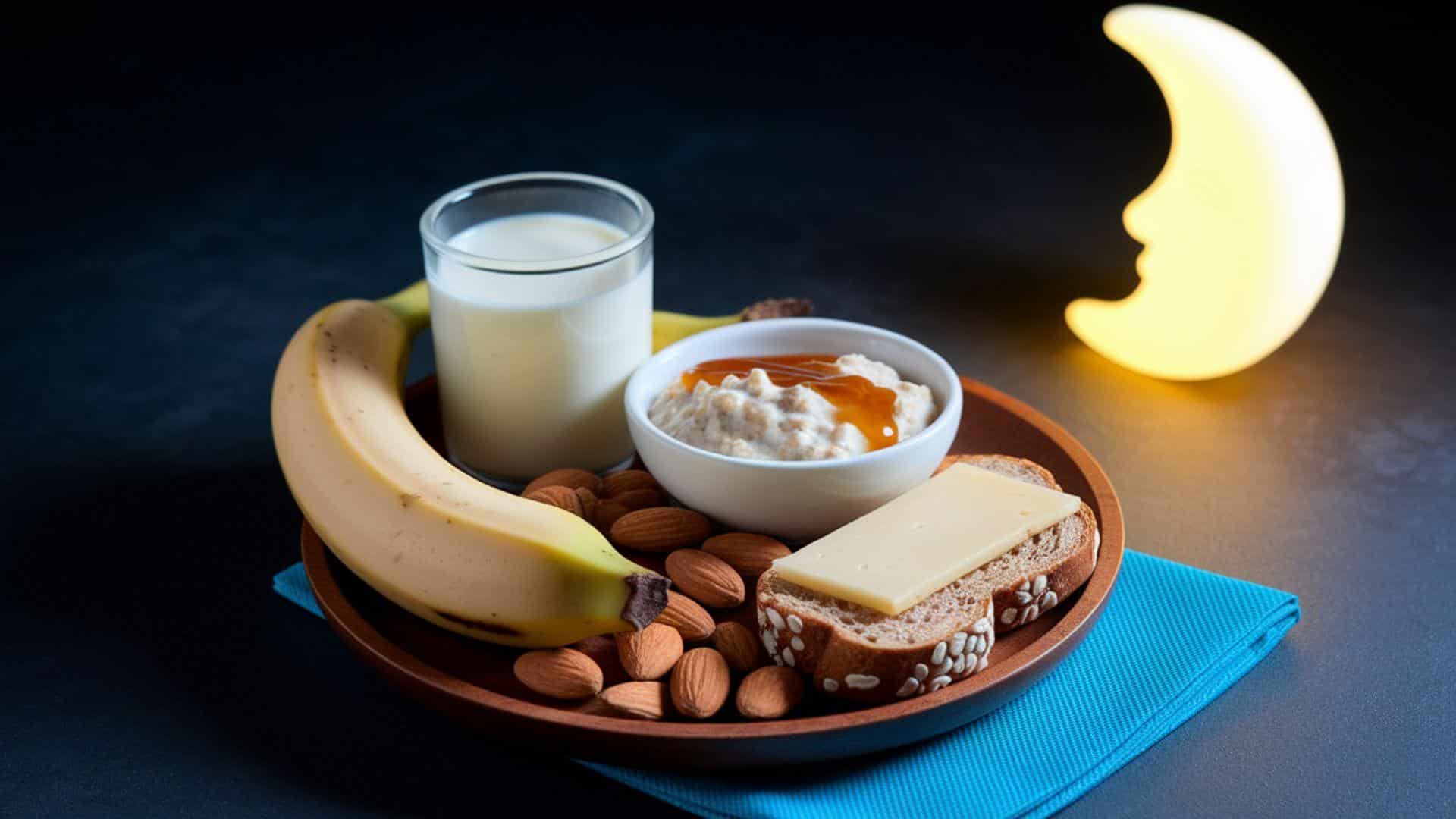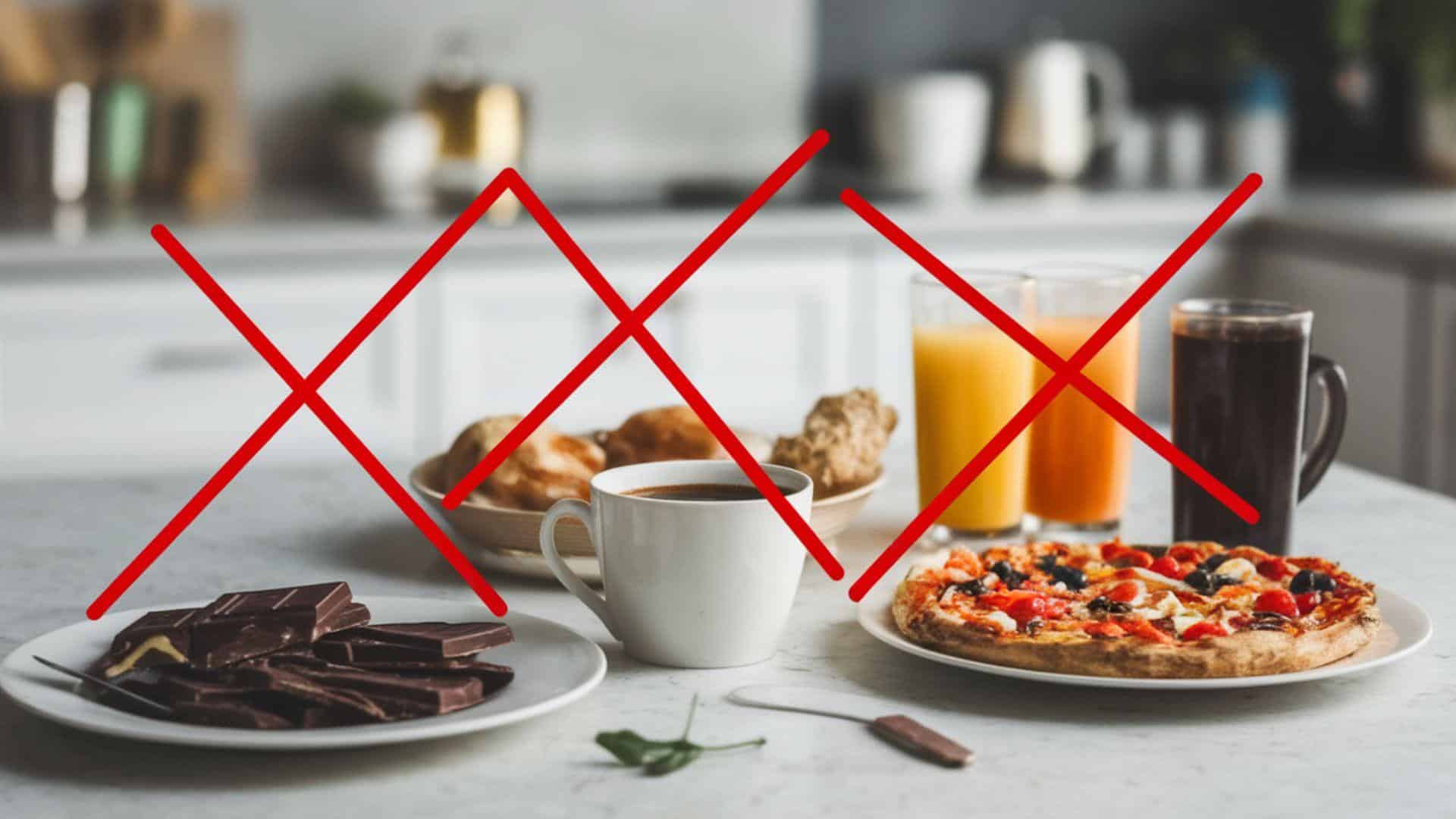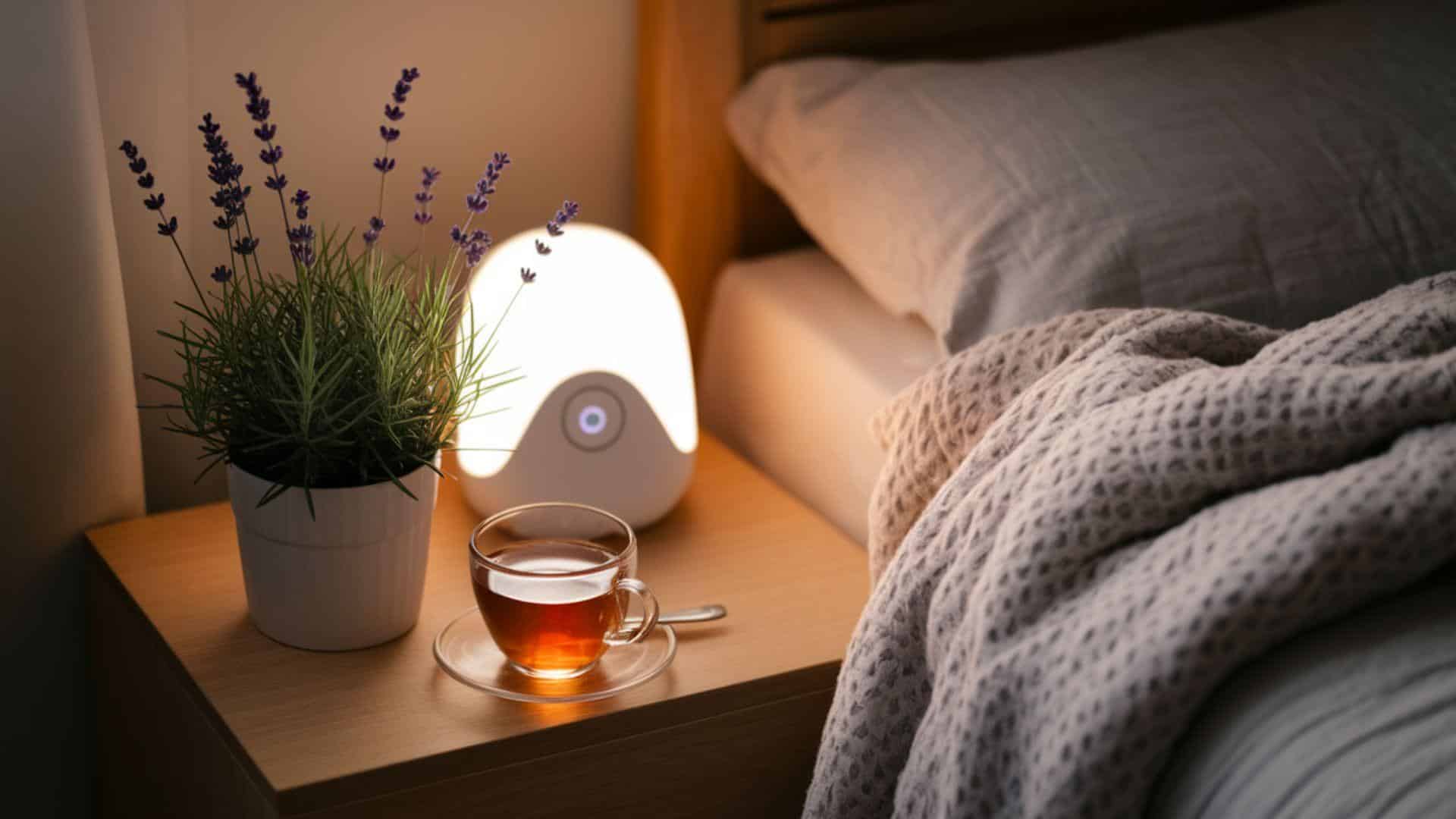
Are you tired of your toddler’s midnight wake-up calls? I was, too, until I learned how certain foods can help my little one sleep through the night.
As a parent, I’ve noticed that what my toddler eats before bedtime makes a huge difference in how well they sleeps.
Foods that help toddlers sleep through the night contain special nutrients like tryptophan, magnesium, and calcium that naturally promote sleepiness.
These nutrients help their bodies produce melatonin and serotonin – the sleep hormones that signal it’s time to rest.
I’ve found that simple bedtime snacks like bananas with almond butter, warm milk, or oatmeal can change bedtime from a battle into a peaceful transition to dreamland.
Foods that Help Toddlers Sleep!
I’ve noticed that what my toddler eats can make a big difference in how well they sleeps! I’ve found that foods that help babies sleep through the night include milk, bananas, oatmeal, and almonds.
I’ve learned that these foods contain special nutrients, like tryptophan, that help my child’s body make sleep hormones.
Melatonin and serotonin are sleep hormones that tell the body it’s time to rest. I give my little one a small bedtime snack with these sleep-friendly foods to help them drift off more easily and stay asleep longer.
I make sure to serve these foods about an hour before bedtime for the best results.
Nutrients That Promote Better Sleep

I’ve found that certain nutrients, such as magnesium, tryptophan, and vitamin B6, have dramatically improved my child’s sleep quality.
I make sure to include foods rich in these sleep-promoting nutrients in my toddler’s dinner, and I’ve noticed he falls asleep faster and wakes up less during the night.
Let’s take a look at the to below to understand more about these nutrients.
| NUTRIENT | ROLE IN SLEEP |
|---|---|
| Magnesium | Magnesium relaxes muscles and the nervous system, aiding relaxation and sleep. |
| Calcium | Calcium helps the body produce melatonin, the hormone that signals sleep. |
| Tryptophan | Tryptophan is an amino acid that helps produce serotonin and melatonin, which are both involved in sleep regulation. |
| Vitamin B6 | Vitamin B6 helps convert tryptophan into serotonin, promoting relaxation. |
| Carbohydrates | Complex carbohydrates stabilize blood sugar levels, preventing hunger during the night and promoting sleep. |
Best Foods That Help Toddlers Sleep Through the Night

1. Bananas: A Sleep-Inducing Powerhouse
I always offer my toddler a banana before bedtime because I’ve noticed it helps him fall asleep faster.
I love that bananas contain magnesium and potassium, which naturally relax muscles. Plus, they have tryptophan that converts to melatonin in his little body, making my nights more peaceful too.
2. Oatmeal: A Comforting Bedtime Meal:
I serve my daughter warm oatmeal as her evening snack because I’ve found it triggers sleep hormones.
I add a touch of honey for sweetness, and the complex carbs keep her full all night. I appreciate how oatmeal’s high melatonin content has significantly reduced our midnight wake-ups.
3. Warm Milk: The Classic Sleep-Boosting Drink
I give my son warm milk before bed just like my mother did for me. I’ve found it’s not just tradition – the calcium helps his body use tryptophan to make melatonin.
I love our special ritual, and I notice he sleeps soundly after drinking his small cup of milk.
4. Sweet Potatoes: Relaxation and Nutrients Combined
I include sweet potatoes in my toddler’s dinner whenever I want to ensure a good night’s sleep. I’ve found the potassium in them works as a natural muscle relaxant.
I love that they’re packed with vitamins, while the complex carbs keep hunger away during those crucial first sleep cycles.
5. Almonds: A Nutritious, Sleep-Friendly Snack
I provide my toddler with almond butter toast as a bedtime snack because I’ve noticed the magnesium helps him relax.
I make sure to serve it early enough for digestion. The protein-fat combination in almonds keeps his blood sugar stable, preventing those 2 AM hunger cries.
Perfect Bedtime Snacks for Toddlers

- Sliced Banana with Almond Butter: Bananas contain magnesium and potassium, which help muscles relax. When I spread a little almond butter on banana slices, my toddler gets protein that keeps hunger away all night.
- Oatmeal with Flaxseed: A Soothing Pre-Bedtime Meal: I make a small bowl of warm oatmeal with ground flaxseed about 30 minutes before bedtime. It’s full of melatonin and helps my little one feel cozy and ready for sleep.
- Warm Milk with a Drizzle of Honey: I warm up some milk and add just a tiny bit of honey for my toddler. The warm milk has tryptophan that makes them sleepy, and the honey helps it taste good.
- Greek Yogurt with Berries: A Protein-Packed Sleep Aid: I serve a small cup of Greek yogurt with a few berries mixed in. The calcium helps the brain use tryptophan to make melatonin, which tells the body it’s time to sleep.
- Whole Grain Crackers with Cheese: A Balanced, Sleep-Boosting Snack: I give my toddler two whole grain crackers with a slice of cheese about an hour before bed. The mix of carbs and protein keeps their tummy happy all night long.
Foods to Avoid Before Bed

When it comes to helping my toddler sleep well, I’ve learned that certain foods can really mess with bedtime. Sweet treats like cookies or candy give them a sugar rush that makes it impossible to settle down at night.
I always avoid anything with chocolate or hidden caffeine in the evening because it keeps them wide awake and bouncy when they should be winding down.
I’ve noticed that greasy or high-fat foods like french fries or pizza take longer to digest and can cause tummy troubles that wake them up.
And I never serve spicy or acidic foods like oranges or tomato sauce before bed because they can cause heartburn or discomfort that makes it hard for my little one to stay asleep through the night.
Tips to Create a Sleep-Enhancing Diet Routine
1. Timing Meals and Snacks to Promote Better Sleep
I serve my toddler’s last snack about 45 minutes before bedtime. This gives their little body enough time to digest but not get hungry again.
I’ve found that spacing meals evenly throughout the day helps their body expect and prepare for sleep.
2. Encouraging Hydration Earlier in the Day
I make sure my toddler drinks plenty of water earlier in the day and limits drinks after dinner.
This helps prevent middle-of-the-night bathroom trips that disrupt sleep. We use a special cup that tracks water intake throughout the morning and afternoon.
3. Protein-Rich Dinners: Keeping Hunger at Bay
I include eggs, chicken, beans, or tofu in my toddler’s dinner to keep them full longer. Protein takes time to digest and helps maintain steady blood sugar levels throughout the night. When I skip protein at dinner, I notice more midnight wake-ups asking for food.
4. Establishing Consistent Meal and Sleep Routines
I serve meals and snacks at the same times every day, which helps my toddler’s internal clock know when sleep time is coming.
Their body learns that after dinner and a small bedtime snack, it’s time to wind down. This predictability makes bedtime much smoother.
Natural Sleep Remedies for Toddlers

- Herbal Teas: Calming Chamomile and Lavender—I make a very weak, lukewarm chamomile tea for my toddler about 30 minutes before bed. The natural compounds help calm their busy minds and signal that it’s time to rest.
- A Warm Bath Before Bedtime: Relaxing Your Toddler’s Body – I’ve found that a warm bath helps lower my little one’s body temperature afterward, which triggers sleepiness. Adding a few drops of lavender bath soap makes the experience even more calming.
- Establishing a Relaxing Bedtime Routine – I follow the same steps every night: bath, pajamas, story, and cuddles. My toddler’s body and mind now recognize these cues and understand that sleep comes next.
- The Power of Music and White Noise for Soothing Sleep – I play the same gentle lullaby playlist each night as we prepare for bed. Then I switch to white noise that blocks out household sounds and helps my toddler stay asleep all night.
- Gentle Massage to Calm and Relax Your Toddler—Before bed, I spend a few minutes gently rubbing my toddler’s back or feet. This simple touch therapy helps release tension and prepares the body for deep, restful sleep.
Final Thoughts
After trying different foods and routines, I’ve seen firsthand how the right bedtime snacks help my toddler sleep through the night.
Foods that help toddlers sleep through the night work best when paired with consistent routines and a calm environment.
I time our meals and snacks carefully, focusing on sleep-friendly foods at dinner and offering a small nutritious snack about 45 minutes before bedtime.
I’ve found that avoiding sugar, caffeine, and heavy foods while choosing options rich in magnesium, calcium, and tryptophan creates the perfect recipe for restful nights.
By combining these sleep-boosting foods with gentle bedtime rituals, my toddler and I enjoy more peaceful nights. Sweet dreams begin in the kitchen—and lead to sweet mornings for the whole family!
If you’re interested in more informational content on mothers and babies, feel free to click here and explore other blogs that you might enjoy.

